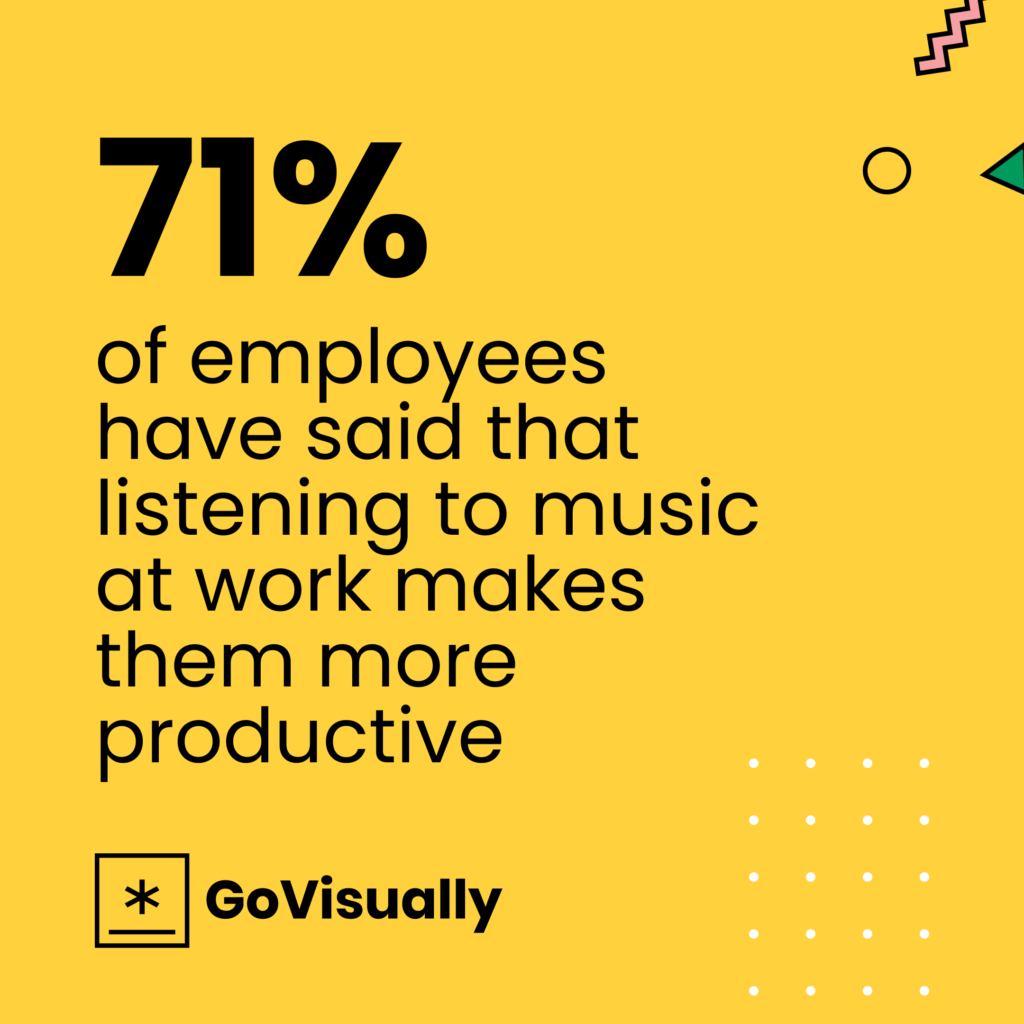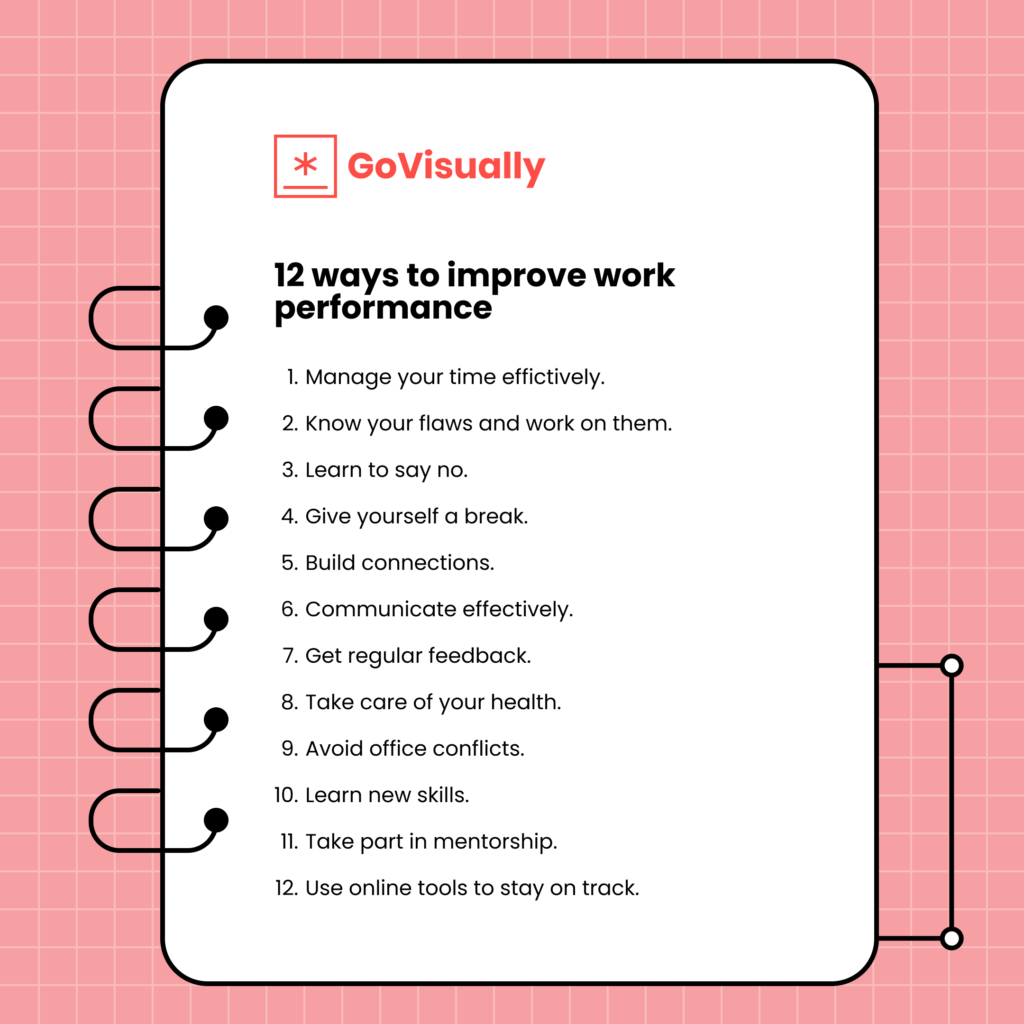Looking for ways to improve work performance?
Whether you’re a newcomer at a job, want to be the one who secures the job promotion, or develop yourself professionally, improving your work performance can help you drastically in the long run.
Plus, top-performing employees are always favored more by the managers, and if you want to secure a spot in their good book or improve your work performance overall, keep on reading.
This article will discuss the 15 practical ways to improve performance at work and earn the respect of your coworkers. We have also narrowed the list down to the top 3 ways to improve work performance.
Let’s start!
Keep away from distractions.
Distractions are the biggest productivity killer. You might be busy working on your project when a text from your coworker takes away your attention entirely. Your work zone has been interrupted, whether a text to ask for help on their project or a simple lunch plan. It will take a while to get back to work on hand.
You can effectively streamline your work and enhance your performance by managing distractions. One of the top 3 ways to improve work performance is limiting distractions or restricting them. Learn more about employee listening benefits.
Things you can do to keep away from distractions:
- Please turn off your smartphone or set it to Do Not Disturb mode.
- Work in an environment with minimal noise.
- Try listening to music or creating a work playlist.
- If you are working remotely, create a space for work free of distractions, e.g., your smartphone.

Set milestones
A sudden wave of motivation might compel you to set big goals.
But let’s be real.
These goals are always hard to accomplish. Not to mention that even the thought of accomplishing them can feel overwhelming and put you off the project completely. Setting milestones is one of the most effective ways to improve performance at work.
You should divide your project into smaller, easily achievable tasks and allocate a specific deadline for every single one. This way, your work will be more organized and structured. Plus, you will feel elated once you finish one task and eager to begin another.
Things you can do to set milestones:
- Split big projects into smaller milestones
- Assign a specific timeframe to every single one of the tasks.
Avoid multitasking
Multitasking may seem like a perfect solution to eliminate all the workload piling on the top of your desk at once. However, multitasking has detrimental effects on your work performance.
Human brains are not designed to handle multitasking. It might seem like a quick way to get everything done. But multitasking slows you down and hampers your productivity. It slows down an individual’s work pace as the brain repeatedly switches from one task to the other, thus exhausting all the mental energy.
This is because your brain is actively switching from one task to another rather than focusing on only one thing at a time, leading to “task switch costs.”
Things you can do to avoid multitasking:
- Make a priority to-do list and stick to that while working.
- Please select the most important task, and work on it.
- Rather than simultaneously focusing on projects, prioritize one and work on it before jumping on the next one.
What should you do to improve your performance at work – 12 actionable tips!

Manage your time effectively
Managing your time successfully improves your work performance and boosts your productivity.
We only have 24 hours in one day and so much to get done. Skillfully coordinating your activities means allocating a time frame to each task. This way, you will submit the project on time, punctually during meetings, and reward yourself with some self-care time.
Things you can do to manage your time:
- Start your day early and create an organized to-do list.
- Please note all the day’s important tasks, allocate them a time frame, and focus on them.
- Be realistic while making a daily schedule, and don’t overload your schedule with more work than you can handle.
Know your flaws and work on them
You might have entangled yourself in a particular work regime for so long that it might be hard to recognize the flaws hampering your growth.
In that case, you must assess yourself and address all the inadequacies. For example, you might have difficulty being punctual and a habit of leaving things last minute. Or you slack off at work and distract yourself with your smartphone.
Things you can do to improve:
- Acknowledging all your weaknesses is the first step to improving them.
- Working in the same flow will not get you so far, so don’t settle for less when you can work on a weak spot and strengthen your skills.
Learn to say no
It’s alright to do a small favor to a colleague as you might need one from them someday. However, don’t let anyone dump their work on you.
We have only 24 hours in one day. Do you want to waste them on something unimportant when you can do something more worthwhile?
Set clear and firm boundaries, and learn to say no politely to anyone who tries to cross them. Be assertive and straightforward.
Things you can do to set boundaries:
- Say no to anything that can hamper your productivity.
- If you find it hard to say no, develop relevant excuses, e.g., “Sorry, I can’t. I already have so much work to do on my own.”
Give yourself a break.
You’re mistaken if you think falling into the endless abyss of work will get you a raise. The most it will get you is a pat on the back.
You mustn’t drown yourself in work but give yourself breaks to keep a hold of your sanity. It’s humanly impossible to be productive all the time. So, take regular breaks such as a coffee break or a walk.
Things you can do to take breaks:
- Try the Pomodoro Technique for work. It’s a method in which you focus on your task for 25 minutes, followed by a 5-minute long break.
- Take short breaks to go for a walk or coffee.










